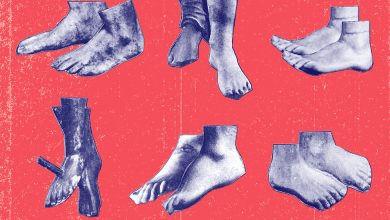I’m a Prosecutor. But I Won’t Enforce an Inhumane Law.

Almost two and a half years ago, I took my oath of office as prosecutor, and swore to protect my community from those who broke the law. The real threat, I now realize, may stem from those who write the law.
If the Supreme Court overturns Roe v. Wade, the rights of thousands of Virginian women will be thrown into question. While the commonwealth does not have an abortion ban on the books, our governor has said that he is “staunchly, unabashedly” against abortion and fully committed to “going on the offense” against abortion rights in our legislature. Should Roe fall, he could well strip women of their reproductive rights — and go after thousands more who flock to the state whenever neighboring jurisdictions clamp down on abortion access. What’s more, in Virginia today women who are suspected of terminating a pregnancy without the assistance of a certified medical professional can face felony charges if they miscarry.
So when the court’s draft decision overturning Roe v. Wade was leaked earlier this month, I committed to never prosecute a woman for making her own health care decisions. That means that no matter what the law in Virginia says, I will not prosecute a woman for having an abortion, or for being suspected of inducing one.
I didn’t make this decision lightly. But I knew my constituents were tired of the empty rhetoric from Democrats in Washington, desperate for action and understandably fearful for their future. One woman in her 60s told me she was irate that her daughters and granddaughters would have to fight for a right she has had for most of her adult life. A woman who recently got pregnant after a miscarriage was overcome with anxiety about how her choices may be limited if there are complications with her pregnancy.
Such accounts are, unfortunately, heartbreakingly numerous. But we local prosecutors are uniquely positioned to safeguard the rights of the women we represent, by virtue of the discretion the legal system affords us. Every day, we decide where to deploy our limited resources, making judgment calls about which cases are consistent with the values and priorities of the communities we represent, which plea deals to pursue and which crimes merit our attention. When it comes to charging individuals, we are the arbiters of the law.
For hundreds of thousands of American women, access to an abortion soon will depend not only on which state they live in, but also on how hard-line their local prosecutor is. That’s why I hope prosecutors across the country will join me in choosing to lead on behalf of the women we represent.
I’m taking this step, in part, because of public safety concerns: Before Roe, hundreds of women lost their lives annually because of unsafe attempts to terminate pregnancies. Marginalized populations were most at risk. One 1960s study of low-income women in New York City found that 98 percent of respondents who had terminated a pregnancy indicated that no physician was involved in the procedure.
Thanks to the proliferation of medication abortion, women today have more, safer options than they did in the 1960s. Still, there’s no doubt that many women, especially those who are the most vulnerable, are likely to end up in situations that are medically or legally unsafe. That is the reality Justice Samuel Alito and those who joined his dangerous draft opinion are tacitly endorsing.
I also have privacy concerns about anti-abortion laws. Our Constitution protects individuals from government intrusion into their personal lives. If Roe falls, many states will have to rely on an Orwellian regime to enforce blanket bans on abortion. Imagine, for instance, the trauma a woman would have to endure following a miscarriage if a prosecutor with a political ax to grind decides to pursue a criminal case against her. The grief of losing a pregnancy could be followed by a law enforcement interrogation about drug use. Police may root through her trash bins under the cover of darkness for empty bottles of liquor or beer. Her most private thoughts may be pored over by police officers wielding search warrants that grant them access to her text messages and emails with intimates.
Law enforcement may coerce the medical professionals who rendered treatment on one of her darkest days into revealing information she provided in confidence about her medical history. And her past partners may be hauled into police precincts to discuss her sex life. Following this intrusive investigation, a prosecutor could stand in front of a grand jury and present deeply personal findings before encouraging those impaneled to criminalize a woman still racked with grief.
This scenario may sound alarmist, but it is already happening in conservative states that have severely constrained abortion access. In Texas, a prosecutor in Starr County indicted a woman for murder after she lost a pregnancy. Hospital staff reported her to law enforcement, claiming they had reason to believe that she had induced an abortion. In Oklahoma, a woman was sentenced to four years in prison for manslaughter after losing her pregnancy.
These stories are not anomalies. According to the National Advocates for Pregnant Women, between 1973 and 2020, more than 1,700 women were arrested or prosecuted for charges related to the loss of a pregnancy in the United States. With the toppling of Roe, local prosecutors will be the last line of defense standing between American women and an expansion of this enforcement dragnet.
By making clear to law enforcement that we won’t prosecute women for making health care decisions, we can disincentivize these intrusions into the personal lives of the people we serve.
I recognize that this may come at a personal cost. Since making this pledge, a death threat was phoned into my office, forcing me to worry about the effect my actions may have on my family — at a time when I am terrified that my daughter is growing up in a country that limits her choices.
But I know that this exercise in prosecutorial discretion is one of the few ways to reform the justice system. I’ve seen it happen: Shortly after I took office, I elected to stop charging adults with simple possession of marijuana. I could not justify wasting my team’s limited resources on saddling disproportionately Black and brown marijuana users with a criminal record when we had serious crimes to prosecute. While many stakeholders in the system wagged their fingers after I made this announcement, Virginia’s legislature legalized simple possession of marijuana statewide less than two years later.
That story should offer some hope to those fighting for reproductive rights. Currently, 13 states have “trigger laws” that will severely restrict or ban abortion the day Roe falls. Since the Supreme Court’s draft opinion leaked to the press, Republican officials in at least eight states have also called for special legislative sessions to introduce new abortion restrictions. But by committing to not prosecuting women for having abortions, we might succeed in preventing the irreversible expansion of a deeply intrusive enforcement dragnet — and, as we did with marijuana legalization, maybe even motivate legislators to take the necessary action to safeguard Americans’ rights.
Steve Descano is the commonwealth’s attorney for Fairfax County, Va.
The Times is committed to publishing a diversity of letters to the editor. We’d like to hear what you think about this or any of our articles. Here are some tips. And here’s our email: [email protected].
Follow The New York Times Opinion section on Facebook, Twitter (@NYTopinion) and Instagram.





